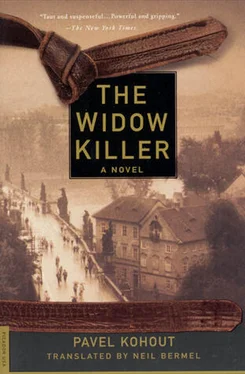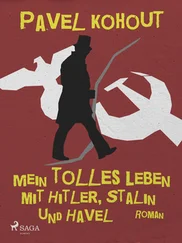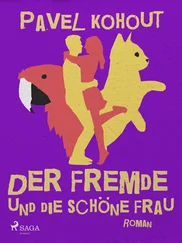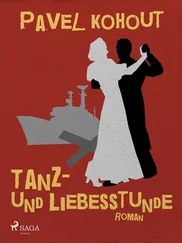Pavel Kohout - The Widow Killer
Здесь есть возможность читать онлайн «Pavel Kohout - The Widow Killer» весь текст электронной книги совершенно бесплатно (целиком полную версию без сокращений). В некоторых случаях можно слушать аудио, скачать через торрент в формате fb2 и присутствует краткое содержание. Год выпуска: 2007, Издательство: St. Martin's Press, Жанр: Современная проза, на английском языке. Описание произведения, (предисловие) а так же отзывы посетителей доступны на портале библиотеки ЛибКат.
- Название:The Widow Killer
- Автор:
- Издательство:St. Martin's Press
- Жанр:
- Год:2007
- ISBN:нет данных
- Рейтинг книги:5 / 5. Голосов: 1
-
Избранное:Добавить в избранное
- Отзывы:
-
Ваша оценка:
- 100
- 1
- 2
- 3
- 4
- 5
The Widow Killer: краткое содержание, описание и аннотация
Предлагаем к чтению аннотацию, описание, краткое содержание или предисловие (зависит от того, что написал сам автор книги «The Widow Killer»). Если вы не нашли необходимую информацию о книге — напишите в комментариях, мы постараемся отыскать её.
The Widow Killer — читать онлайн бесплатно полную книгу (весь текст) целиком
Ниже представлен текст книги, разбитый по страницам. Система сохранения места последней прочитанной страницы, позволяет с удобством читать онлайн бесплатно книгу «The Widow Killer», без необходимости каждый раз заново искать на чём Вы остановились. Поставьте закладку, и сможете в любой момент перейти на страницу, на которой закончили чтение.
Интервал:
Закладка:
In the darkened compartment he read newspaper articles about sunken registered tons of British goods, American planes shot down, and destroyed Soviet tanks, but he barely noticed the figures. He was imagining what they would write in two days’ time about HIM.
The sometime room painter Josef Jurajda, now a night watchman, was dragged from under his quilt early the next morning by Váca; he had had a night off. Yes, sir, his wife had gone to Olomouc, he muttered, to bring their daughter and grandchildren back; it looked like there would be fighting in the city, and they had a one-story house there with a shallow cellar. No, sir, he hadn’t gone; got to catch up on sleep when you can, never enough of it with this job. Yes, sir, February fourteenth was just an ordinary day for him: he got home at six in the morning, slept through till evening, and at eight was back at work. No, sir, he couldn’t swear to it; the years went round like a spinning wheel, one night was pretty much like the rest and he knew even less about the days, but his wife remembered they’d bombed Prague that afternoon, and he’d heard about it from her in the evening. Yes, sir, he remembered her saying it as she woke him up to go to work; he was always the last to know, once the train had left the station, so to speak. No, sir, who would he have run into at work? He gets there long after everyone’s gone, and the cleaning girls don’t come till morning.
Morava ran out of questions and glanced at Buback. The German shook his head. He too seemed surprised that ten years ago this chubby guy — with the eyes of a rabbit and the cheeks of a hamster — had been jabbing tied-up prostitutes with pins and masturbating at them.
In any event, he made a note that this half-educated retired sadist spoke a quite literary Czech. Like most Moravians, he thought proudly — and immediately remembered what the caretaker from Vltava Embankment had said about the man who carved up the Pomeranian baroness. Of course! A fellow Moravian. That didn’t excuse him, but it did narrow the field of possible perpetrators from seven million to three….
He realized that Buback would be missing the telltale linguistic signs, but kept it to himself until he could consult with Beran. He snapped face-on and profile shots of the watchman for the Prague caretaker and recommended to Váca that he let the man go back to bed for the meanwhile. Then they set off southward.
He got in next to the German and asked if he had a particular route in mind. No, he learned, and risked a suggestion: would Herr Oberkriminalrat like to stop for lunch along the way? When Buback nodded, Morava even felt brave enough to propose a location: there was a decent pub on the main road; they would reach it around noon and — if this was acceptable — Morava could meanwhile stop briefly to visit his mother.
For the first time the German showed something like human interest. Morava briefly explained to him that he came, as his surname suggested, from Moravia — more precisely from what was once the Moravian-Austrian border region where they were headed. That was why he’d spoken passable German since childhood. His father, he continued, died a long time ago, and his mother lived alone next to the old family smithy, now rented out, since he, her only son, had fled to Prague to study law and his sister had married a vicar. Later, the Germans closed the Czech colleges and universities, halting Morava’s studies, and he’d landed, degreeless, in the police force.
Was an hour enough, Buback asked in telegraphic style, and the assistant detective made a mental note of the debt, one to pay back even if the creditor was a Nazi.
They fell silent (their driver, Litera, Beran’s favorite, was more taciturn today than usual) as the car wound along narrow country roads not built for the double load of spring farming and war traffic. When possible they passed the trucks carrying fertilizer and the army kitchen, and were themselves passed by official cars and couriers on powerful motorcycles.
Some soldiers with the insignia of the feared German field troopers (which reminded Morava of a tin spitoon) surfaced unexpectedly just past Rakvice. The policemen’s Protectorate identification papers got a good laugh out of them, but as the troopers were turning the car back, Morava’s companion showed his usefulness.
My God, Morava realized as he watched the three bandits change instantly into sheep, Buback really is a much bigger cheese than Beran.
The war had by this point squeezed spring off the carriageway; every once in a while deep ruts in the fields leading to the nearby woods hinted at huge quantities of hidden military machinery.
They found the pub on the village square closed. A toothless old man who did not recognize Morava whistled that the landlord had left with his family for Brno. Before the assistant detective’s spirits could sink, the German remarked dryly that he was not hungry anyway and would rather have a half-hour walk in the fresh air. Morava was decidedly grateful. They let Buback out, and Litera veered as directed down the muddy lanes toward the smithy. The tenant smith was finishing one horseshoe while Morava’s mother tended to the horse.
“Jan! My baby!” she shouted joyfully, and carefully put the hoof down onto the hard-packed soil. “It can’t be! It can’t! Oh!”
While the driver swallowed slabs of bread and bacon in the kitchen, washing it down with huge gulps of rose-hip tea, Morava’s mother repeated those words over and over again in the neatly kept sitting room. Her son, meanwhile, hastily told her that he had fallen in love with the sweetest girl under the sun and wanted to make her his wife, and that he intended to bring his mother back to Prague as soon as possible, so that he and Jitka could give her grandchildren while they were still working.
The farther they traveled, the more the land resembled a giant army encampment, and Erwin Buback became more and more ashamed of his nighttime funk.
The faces of officers and soldiers on the truck beds and the seats of the official jeeps were not shining with enthusiasm, but that is how members of any army look when they have been practicing the dreary art of war for years on end. On the other hand, there was no faintheartedness in their faces or even fatigue; they looked rested, radiating a calm resolve and certainty that they would succeed and survive.
He had noticed this phenomenon before. Despite the retreats on all European theaters, a single successful strike was enough to change the soldiers’ mood overnight. A step forward, Buback knew, was a cure, even if only for a couple of days; it gave the German soldiers a reserve of moral and physical strength for another month on the defensive.
This broken terrain, its southern slopes covered with vineyards, would be suitable for a new main line of defense. However, treadmarks in the wet soil indicated that a large number of tanks had recently passed by. That suggested this might be the very place where the long-awaited counteroffensive would begin.
Colonel Meckerle, who had excellent connections in the Führer’s main council, had recently made it known that the retreat was part of the most magnificent trap in military history. This was no fairy tale, no rumor, gentlemen! Not just one but two Bolshevik army divisions — one and a half million troops — would be flung into a gigantic cauldron and boiled into borscht. Meckerle had the Gestapo officers’ cafeteria serve the dish, and its dark red color had a very vivid and encouraging effect.
During his short walk around the village green, a massive artillery column rolled by that they had not seen on the way there; it had evidently joined the main road from a side track. The heavy cabs with their long trailers were a dead giveaway: they had to be transporting howitzers beneath their camouflaged canvasses. And it was the howitzer’s percussive fire that launched every major offensive. Buback reproached himself again for his weakness the day before.
Читать дальшеИнтервал:
Закладка:
Похожие книги на «The Widow Killer»
Представляем Вашему вниманию похожие книги на «The Widow Killer» списком для выбора. Мы отобрали схожую по названию и смыслу литературу в надежде предоставить читателям больше вариантов отыскать новые, интересные, ещё непрочитанные произведения.
Обсуждение, отзывы о книге «The Widow Killer» и просто собственные мнения читателей. Оставьте ваши комментарии, напишите, что Вы думаете о произведении, его смысле или главных героях. Укажите что конкретно понравилось, а что нет, и почему Вы так считаете.












